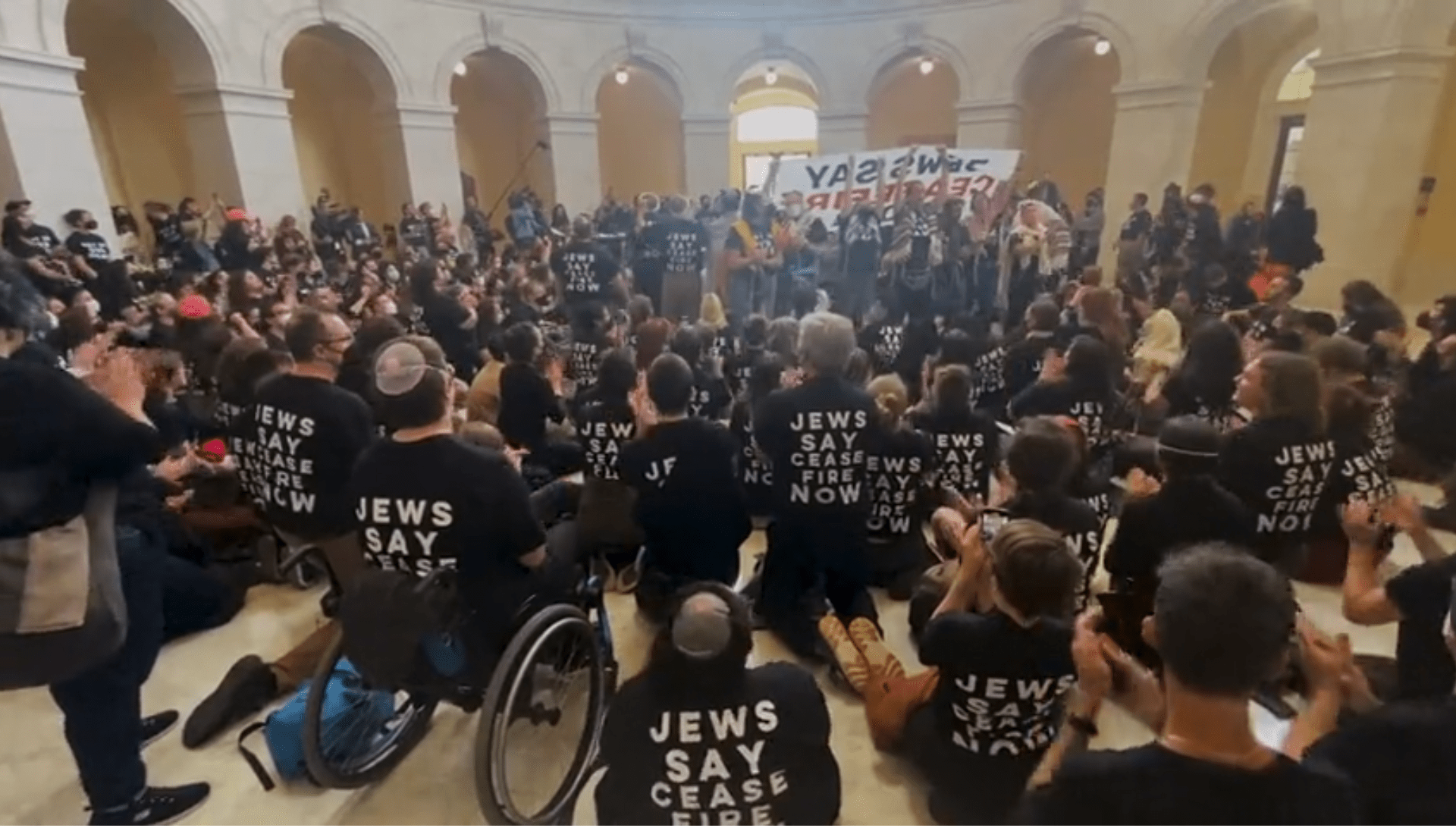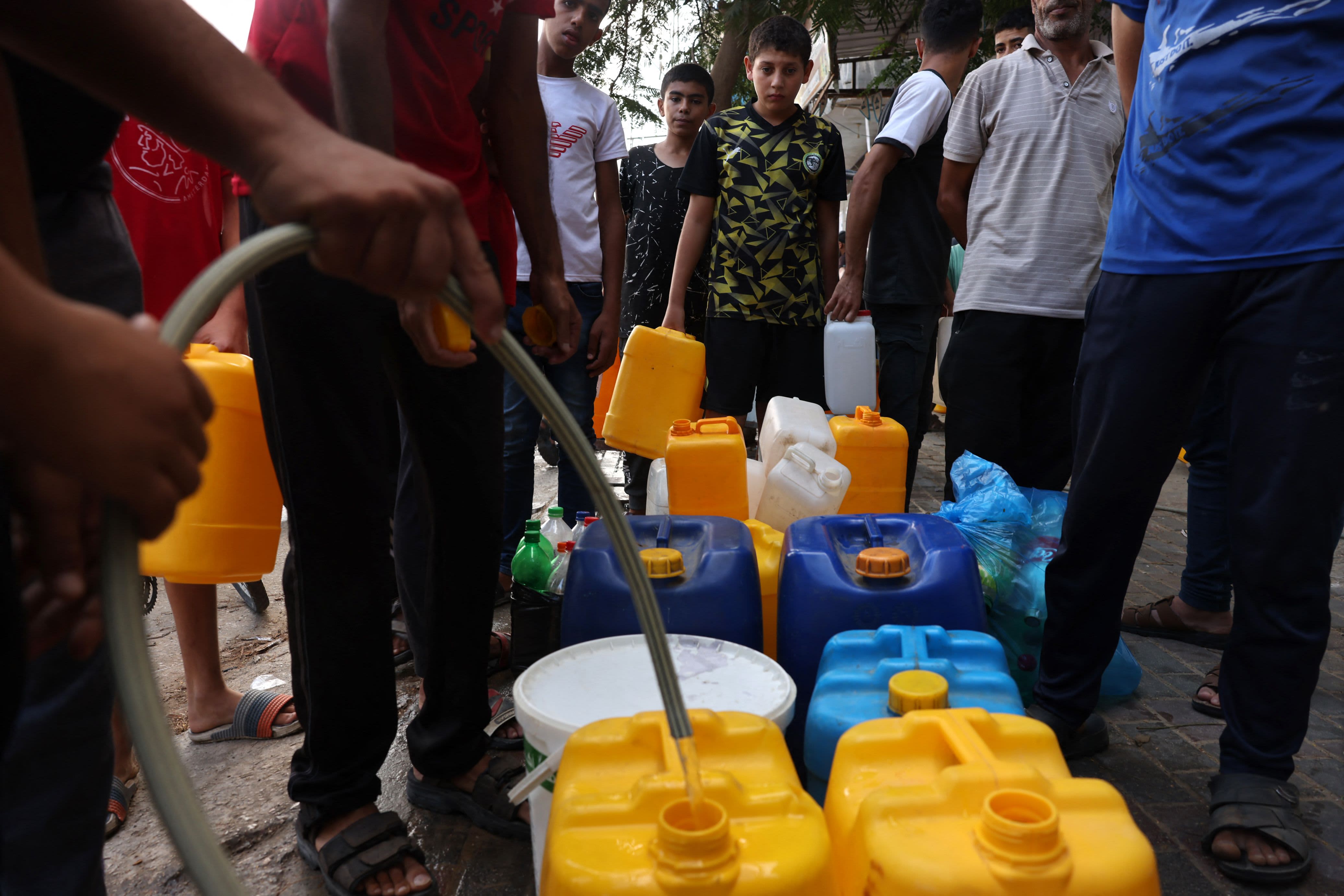Israel pounded the Gaza Strip with airstrikes on Thursday, including in the south where Palestinians were told to take refuge, and the country’s defense minister told ground troops to “be ready” to invade, though he didn’t say when.
Gaza’s overwhelmed hospitals tried to stretch out ebbing medical supplies and fuel for generators, as authorities worked out logistics for a delivery of aid from Egypt. Doctors in darkened wards across Gaza stitched wounds by the light of mobile phones, and others used vinegar to treat infected wounds.
The Israeli military has relentlessly attacked Gaza in retaliation for a devastating Hamas rampage in southern Israel almost two weeks ago. Even after Israel told Palestinians to evacuate the north of Gaza and flee south, strikes extended across the territory, heightening fears among the territory’s 2.3 million people that nowhere was safe.
Palestinian militants fired rockets into Israel on Thursday from Gaza and Lebanon, and tensions flared in the Israeli-occupied West Bank.
In a fiery speech to Israeli infantry soldiers on the Gaza border Thursday, Defense Minister Yoav Gallant urged the forces to “get organized, be ready” for an order to move in. Israel has massed tens of thousands of troops along the border.
“Whoever sees Gaza from afar now, will see it from the inside … I promise you,” he said. “It might take a week, a month, two months until we destroy them,” he added, referring to Hamas.
Israel’s consent for Egypt to let in food, water and medicine provided the first possibility for an opening in its sealing off of the territory. Many of Gaza’s residents are down to one meal a day and drinking dirty water.
Israel did not list fuel as a permitted item, but a senior Egyptian security official said Egypt was negotiating for the entry of fuel for hospitals. The official spoke on condition of anonymity because he was not authorized to talk to the press. The first trucks of aid were expected to go in Friday, Egypt’s state-owned Al-Qahera news reported.
With the Egypt-Gaza border crossing in Rafah still closed, the already dire conditions at Gaza’s second-largest hospital deteriorated further, said Dr. Mohammed Qandeel of Nasser Hospital in the southern town of Khan Younis. Power was shut off in most departments to save it for intensive care and other vital functions, and staff members were using mobile phones for light.
At least 80 wounded civilians and 12 dead flooded into the hospital Thursday morning after witnesses said a strike hit a residential building in Khan Younis. Doctors had no choice but to leave two of the incoming to die because there were no ventilators left, Qandeel said.
“We can’t save more lives if this keeps happening, meaning more children … more women will die,” he said.
The Gaza Health Ministry pleaded with gas stations to give whatever fuel they had left to hospitals. The U.N. agency for Palestinian refugees gave some of its last remaining fuel supplies to hospitals, spokesperson Juliette Touma said.
The agency’s donation to Gaza City’s Shifa Hospital, the territory’s largest, would “keep us going for another few hours,” hospital director Mohammed Abu Selmia said.
The Gaza Health Ministry said 3,785 people have been killed in Gaza since the war began, the majority of them women, children and older adults. Nearly 12,500 others were injured, and another 1,300 people were believed buried under the rubble, health authorities said.
More than 1,400 people in Israel have been killed, mostly civilians slain during Hamas’ deadly incursion on Oct. 7. Roughly 200 others were abducted. The Israeli military said Thursday it had notified the families of 203 captives.
More than 1 million Palestinians, roughly half of Gaza’s population, have fled their homes in Gaza City and other places in the northern part of the territory since Israel told them to evacuate. Most have crowded into U.N.-run schools-turned-shelters or the homes of relatives.
The deal to get aid into Gaza through Rafah, the territory’s only connection to Egypt, remained fragile. Israel said the supplies could only go to civilians in southern Gaza and that it would “thwart” any diversions by Hamas. U.S. President Joe Biden said the deliveries “will end” if Hamas takes any aid.
More than 200 trucks and some 3,000 tons of aid were positioned at or near Rafah, according to Khalid Zayed. the head of the Red Crescent for North Sinai.
Under an arrangement reached between the United Nations, Israel and Egypt, U.N. observers will inspect the trucks carrying aid before entering Gaza. The U.N., working with Egyptian and Palestinian Red Crescent, will ensure aid goes only to civilians, an Egyptian official and European diplomat told the AP. A U.N. flag will be raised on both sides of the crossing as a sign of protection against airstrikes, they said.
The official and the diplomat spoke on condition of anonymity because they were not authorized to brief media.
It was not immediately clear how much cargo the crossing could handle. Waleed Abu Omar, spokesman for the Palestinian side, said work has not started to repair the road between the two gates damaged by Israeli strikes.
Asked if foreigners and dual nationals seeking to leave would be let out of Gaza, Egyptian Foreign Minister Sameh Shoukry told Al-Arabiya TV: “As long as the crossing is operating normally and the (crossing) facility has been repaired.”
Israel had previously said it would let nothing into Gaza until Hamas freed the hostages taken from Israel. Relatives of some of the captives reacted with fury to the aid announcement.
“The Israeli government pampers the murderers and kidnappers,” the Hostage and Missing Families Forum said in a statement.
The Israeli military reported Thursday that it killed a top Palestinian militant in Rafah and hit hundreds of targets across Gaza, including militant tunnel shafts, intelligence infrastructure and command centers. It said it also hit dozens of mortar-launching posts, most of them immediately after they were used to fire shells at Israel. Palestinians have launched barrages of rockets at Israel since the fighting began.
Israel has said it is attacking Hamas militants wherever they may be in Gaza. It has accused the group’s leaders and fighters of taking shelter among the civilian population, leaving Palestinians feeling in constant danger.
After Thursday’s strikes in Khan Younis, sirens wailed as emergency crews rushed to rescue survivors from the crushed apartment building. Many residents were believed trapped under twisted bed frames, broken furniture and cement chunks. A small, soot-covered child, dangling in the arms of a rescue worker, was taken out of a damaged building.
Gaza’s Hamas-led government said several bakeries in the territory were hit in the overnight strikes, making it even harder for residents to get food.
Violence was also escalating in the West Bank, where Israel carried out a rare airstrike Thursday, targeting militants in the Nur Shams refugee camp.
Israeli troops raided the camp the previous night and were still battling Palestinian fighters inside. Six Palestinians were killed in the camp, the Palestinian Health Ministry said, and the Israeli military said the strike killed militants. Ten Israeli officers were wounded when fighters threw explosives at the troops. More than 74 Palestinians have been killed in the West Bank since the war started.
Hezbollah militants in Lebanon on Thursday said they fired missiles into northern Israel, hitting a kibbutz. The Israeli military said no one was injured and responded with shelling on border areas in Lebanon. Hamas militants also fired 30 rockets from southern Lebanese toward Israeli towns. Violence on the border comes amid fears the Hamas-Israel conflict could spread across the region.



0 Comments